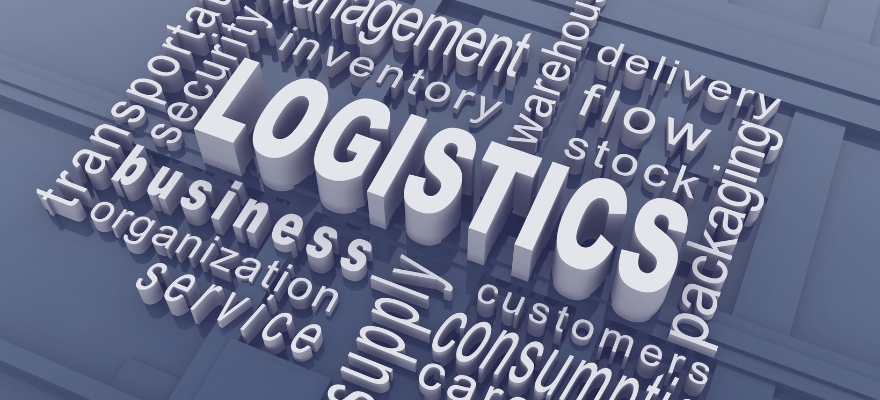Attention: logistics is not limited to transport

Logistics has become a fundamental part of any business. Especially in recent years, with the rise of e-commerce and the arrival of Covid, which have greatly disrupted the global supply chain. What is logistics and how can it be optimised?
Logistics, a task we perform every day
This term is well known to all of us because every company, organisation or even household does logistics at different levels. Preparing the list of meals you are going to eat during the week, checking what is in your fridge or pantry, going to the shop, shopping and coming back, putting the groceries away at home. These everyday actions are planning, inventory/stock management with expiry date management, purchasing. You will also choose the nearest, cheapest or busiest shop, in other words the one that best meets your specifications and finally the most appropriate transport to carry your shopping. All of these steps are part of the logistics process, but the mission is not limited to transport.
A little history…
Etymologically, the word “logistics” comes from the Greek “logistikos” relating to reasoning from a mathematical point of view, but it also has its origins in the military field. More precisely, it is the rank of an officer in charge of the “housing” of the troops. It is therefore not surprising to find the following definitions of logistics in dictionaries:
All operations aimed at enabling armies to live, move, fight and ensure the evacuation and medical treatment of the staff.
All methods and means relating to the organisation of a service, a company, etc., and including handling, transport, packaging and sometimes supplies.
Efficiency and organisation
Logistics is the generic term that encompasses the organisation of flows in the areas of transport, handling, packaging and supply. It is involved upstream and downstream as well as during the manufacture of a product. The key elements of efficient logistics are therefore reflection, management, strategy and optimisation.
The aim is to optimise the delivery processes of a product or service as much as possible to reduce costs, and there are many of them:
- Order processing costs;
- Intrinsic stock costs;
- Warehousing costs;
- Transport costs;
- Customer service levels;
- Non-quality costs;
- Organisational costs;
- Waste costs (packaging, breakage, expired products, etc.).
In an era where customers want everything, right away, optimised logistics is an essential weapon for being competitive. An efficient organisation will contribute positively to customer satisfaction, the other objective of logistics. In summary, efficient logistics is the sum of :
Right time + right place + lowest cost + best quality.
What about the flow of information?
Logistics is not only about product flows. It is also about information flows, which are even more crucial. Since physical flows depend on information flows, if stakeholders do not receive the right information at the right time, the physical flow will directly be impacted. The expression “Shit in, Shit out” sums it perfectly up, if incorrect or inaccurate information is integrated, what comes out cannot be accurate. You see the need to ensure information flows are rigorously set up for a flawless execution.
3PL: outsourcing logistics
A term that is often used in the logistics jargon is 3PL or Third-Party Logistics, which is, nothing more than outsourced logistics. A service provider will take care of the subcontracted services such as logistics, storage, order preparation or transport of goods. It thus becomes the intermediary between the company and its customers.
The level at which logistics tasks are handled is classified as follows, increasing the range of services at each level:
- 1PL: First Party Logistics – outsourcing of transport, but the company keeps control of its warehouse
- 2PL: Second Party Logistics – outsourcing of storage of goods in addition to transport
- 3PL: Third Party Logistics – outsourcing of transport and storage, including the organisation of these two activities. This is known as integrated logistics and includes for instance cross-docking services.
Choosing the right 3PL provider
Choosing a logitics service provider is decisive for a company. Making the right choice is not a question of price on a commercial offer, but a meticulous analysis evaluating all the parameters of the provider:
- Adaptability: responsiveness to an increase in activity both in terms of space and processing (partner network, staff, equipment, etc.)
- Technology: tools in place such as WMS, TMS or ERP to optimise processes combined with the possibility of automated data exchange with customers
- Expertise: good references as well as an experience in the handling of a type of goods will further optimise the processes
- Price: prices adapted to the customer’s specifications (urgency of processing, type of goods, level of security required, etc.)
Too often, the first thing that comes to mind when you hear the word “logistics” is transport, which is only one link in this vast and complex field. What is your logistics reality? What is your vision of efficient logistics? Have you thought about outsourcing?
 Client area
Client area

 Subscribe
Subscribe